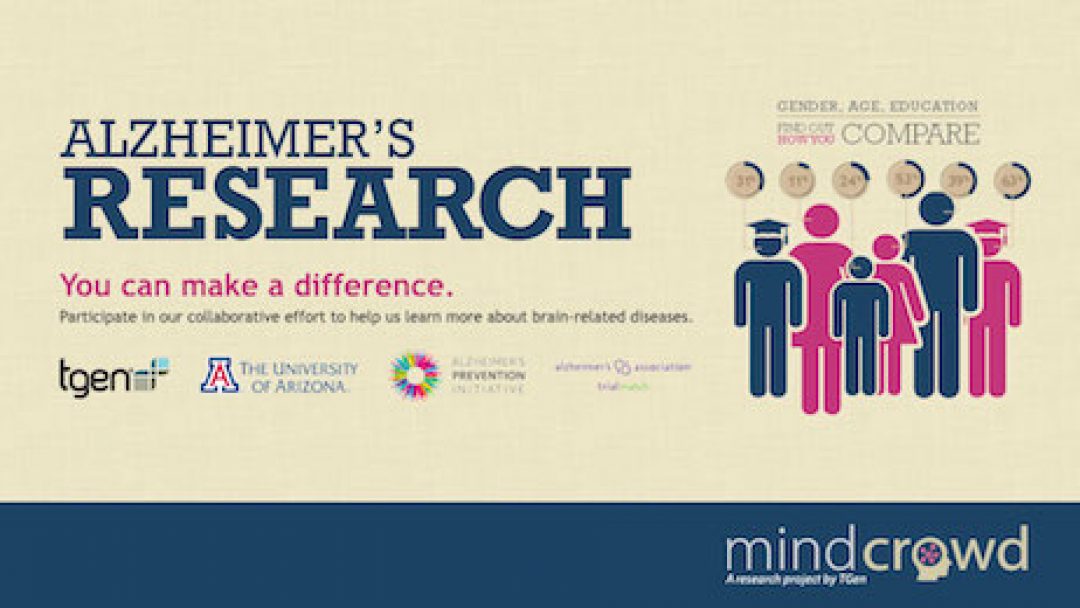In an effort to learn why some live long lives free of brain issues, while Alzheimer’s and other forms of dementia impair others, researchers are looking to utilize technology to find an answer.
TGen, the Phoenix-based Translational Genomics Research Institute, founded and conducts MindCrowd, an online research project to identify patterns in healthy aging – and prevent dementia later on. To this point, the differences seen in results are between men and women, along with people that have a college education.
Having screened roughly 125,000 people since 2013 through its 10-minute online test, MindCrowd has located factors correlated with memory function.
“By better understanding how the brain ages, especially with regards to how learning and memory work during the aging process, we think we can learn how we might prevent Alzheimer’s disease,” MindCrowd founder and principal researcher Matthew Huentelman said Wednesday at the Arizona Alzheimer’s Consortium.
An attention test for reaction time, along with a memory test that includes word association are included in MindCrowd’s online screening.
It was initially difficult to get people to take the test, but the number of test takers has grown over time and continues to grow.
“We think it’s grown incredibly over the past five years, and the goal here now is to have it be a little more explosive, a little more exponential, so we can get to that million much quicker than we got to the first 100,000,” Huentelman said.
With the test currently available in English, Spanish and Mandarin, MindCrowd’s goal is to have 1 million cognitively healthy people screened across the globe.
While researchers are aware of numerous factors in lowering the risk of dementia, Huentelman hopes to grow the list by identifying additional influences.
The screenings have allowed affirmations of previous beliefs about human memory, including how memory declines as people age.
Screening results have found that men have faster average reaction times than women, but that women score higher on the memory portion of the test. Additional findings include that men with heart disease and a family history of dementia are less likely to be affected by their genetic connection to dementia than either women with heart disease or other people without heart disease.
The data collected by MindCrowd’s also claims that there is a correlation between memory function and the levels of educational achievement. Higher scores tend to come from those who attended college than those who went no further in education than high school.
According to Arizona Alzheimer’s Consortium director Eric Reiman, technology provides a unique opportunity for gathering data for Alzheimer’s and other cognitive research.
“The advantage of this approach in research is that it might give us greater power to detect changes over time and the effects of treatment,” Reiman said. “They also have the promise to give us information that could inform a person’s prognosis, how they will do over time and possibly help to inform the care they receive. Imagine using a technology to track changes over time and then the company that made that technology changes it.”
Regardless of prospective obstacles, Reiman expects an increase in Alzheimer’s research funding after it has fallen behind the funding increase for other diseases such as cancer in recent years.
From 2000 to 2015 in the United States, there has been a 123 percent increase in Alzheimer’s-related deaths, according to the Alzheimer’s Association.
Participants personal information will not be shared and the test data is safe and secure.
Click here to learn more about and to take part in the study.








